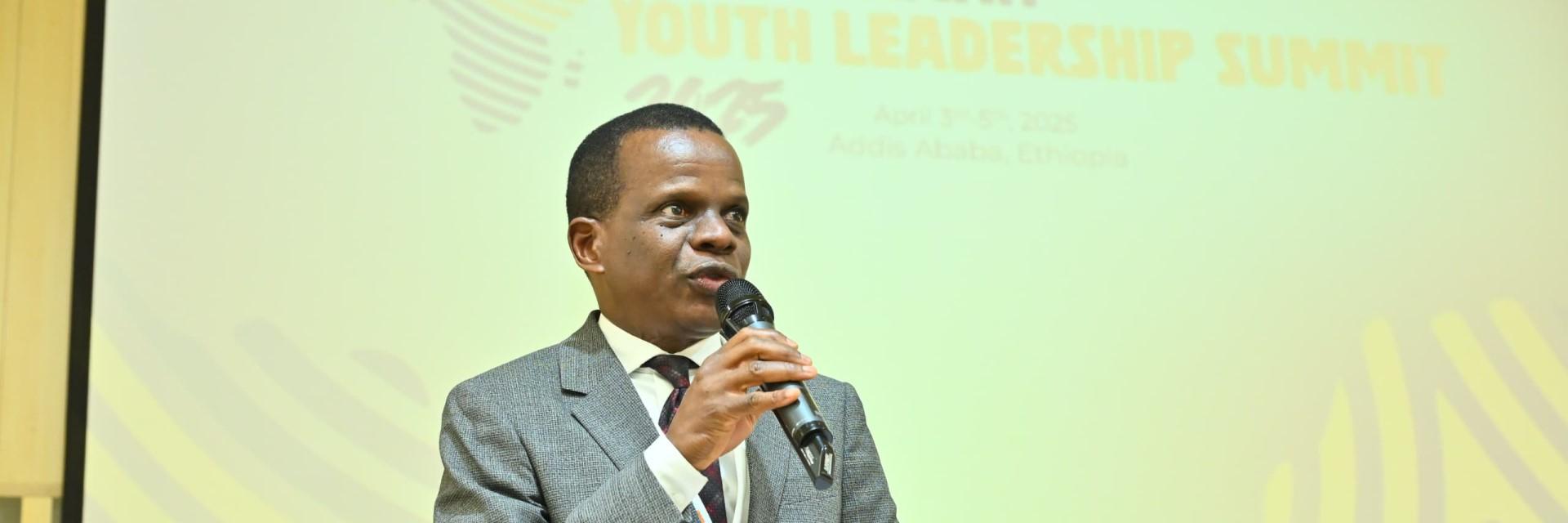Engaging Young People Crucial to Successful Implementation of Africa’s Transformative Agenda - ENA English
Engaging Young People Crucial to Successful Implementation of Africa’s Transformative Agenda

Addis Ababa, April 6, 2025 (ENA) --- Antonio Pedro, the Deputy Executive Secretary of the United Nations Economic Commission for Africa, emphasized that achieving Africa's aspirations hinges on understanding the needs, interests, challenges, and potential of its youth, who make up over 60 percent of the continent's population.
Africa is a continent on the rise. With over 60 percent of its people under the age of 25, it is home to the world’s youngest population. Despite this, it is also the continent with almost 76 million young Africans not in formal employment, education, or training (NEET).
Although 10-12 million youths enter the workforce annually, only around 3 million formal jobs are created in Africa, leaving a significant gap in terms of job creation, Pedro indicated.
“Further, millions of young Africans are facing barriers to entrepreneurship, and struggling to access the skills, capital, and networks needed to succeed.”
For him, the high number of young people excluded from economic and political activities underscores the critical challenge of the disempowered youth population on the continent.
“As such, it is vital to include young people in decision-making and give them appropriate opportunities to work and innovate! The 2030 Agenda for Sustainable Development and Agenda 2063 underscore the importance of promoting the rights of young people and meeting their needs, in all their diversity.”
Achieving these aspirations requires an understanding of the needs, interests, challenges and potential of Africa’s youth, Pedro said stressing the need for youth representatives in economic and political dialogue, decision-making and implementation.
“We must strengthen meaningful youth engagement in policymaking and decision-making processes. This requires interventions at an institutional level, through youth organizations and networks as well as in support of policymakers who can listen to and respond to the voices of youth.”
The education system must evolve to meet emerging societal needs and the demands of the modern economy, the Deputy Executive Secretary noted stating “Over 80 percent of African youths in school aspire to work in high-skilled occupations. Still, only 8 percent find such jobs.”
Skills training programs and active labor market policies are key to helping young people integrate into decent jobs in the formal sector, he underlined.
Together with skills and education, transformative pathways, such as Science, Technology, and Innovation (STI), are essential for empowering Africa’s youth, especially with the global shifts in artificial intelligence (AI) and the green transition.
He cited a report that states AI could add 15.7 trillion USD to the global economy by 2030, with Africa’s share estimated at 1.3 trillion USD- surpassing both Foreign Direct Investment and Illicit Financial Flows (IFFs).
This could significantly boost inclusive, sustainable growth in Africa by enabling opportunities and job creation for the youth, benefiting the continent’s future prosperity.
He mentioned that entrepreneurship is a powerful engine of job creation, but too often, young entrepreneurs face challenges including lack of access to finance, mentorship, and networks, Creating ecosystems that target the youth population on their entrepreneurship journey is therefore key, according to Pedro.
The involvement of the youth in the successful implementation of the African Continental Free Trade Area Agreement will be central. By reducing trade and other barriers, implementation of the Agreement can make it easier for companies to operate across borders, thus facilitating the entry of young Africans into higher-skilled and more productive and innovative sectors, such as agrifoods and climate-smart agriculture.
“To make the AfCFTA work for the youth, we must accelerate the ratification of the Protocols on the Free Movement of People, Goods and Services, Intellectual Property, Investment, and Competition.”